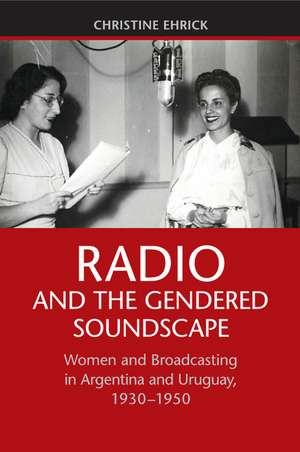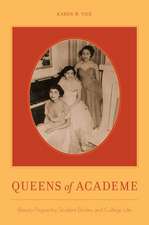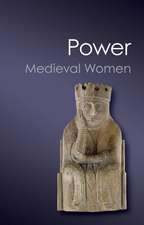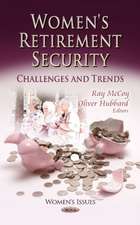Radio and the Gendered Soundscape: Women and Broadcasting in Argentina and Uruguay, 1930–1950
Autor Christine Ehricken Limba Engleză Paperback – 5 oct 2016
| Toate formatele și edițiile | Preț | Express |
|---|---|---|
| Paperback (1) | 284.17 lei 6-8 săpt. | |
| Cambridge University Press – 5 oct 2016 | 284.17 lei 6-8 săpt. | |
| Hardback (1) | 692.50 lei 6-8 săpt. | |
| Cambridge University Press – 22 iul 2015 | 692.50 lei 6-8 săpt. |
Preț: 284.17 lei
Nou
Puncte Express: 426
Preț estimativ în valută:
54.38€ • 59.05$ • 45.68£
54.38€ • 59.05$ • 45.68£
Carte tipărită la comandă
Livrare economică 23 aprilie-07 mai
Preluare comenzi: 021 569.72.76
Specificații
ISBN-13: 9781107438828
ISBN-10: 1107438829
Pagini: 246
Ilustrații: 14 b/w illus.
Dimensiuni: 154 x 230 x 15 mm
Greutate: 0.37 kg
Editura: Cambridge University Press
Colecția Cambridge University Press
Locul publicării:New York, United States
ISBN-10: 1107438829
Pagini: 246
Ilustrații: 14 b/w illus.
Dimensiuni: 154 x 230 x 15 mm
Greutate: 0.37 kg
Editura: Cambridge University Press
Colecția Cambridge University Press
Locul publicării:New York, United States
Cuprins
Introduction: gender in and on the air; 1. Radio and the modern girl: Silvia Guerrico and Buenos Aires broadcasting; 2. A station for women in Montevideo: Radio Femenina; 3. Feminism and populism on the airwaves: Paulina Luisi and Eva Duarte de Perón; 4. Chaplin in Skirts? Niní Marshall; 5. Nené Cascallar: airing clean and dirty longing; Echoes of soundscapes past: epilogue and conclusion.
Recenzii
'Through a series of beautifully written accounts of women's voices as they resounded in Río de la Plata's midcentury soundscape, this book will change the ways we listen. Christine Ehrick deftly restores a crucial sonic dimension to the conjuncture of feminism and modernity and insists on new ways to comprehend its comedic, political, and melodramatic registers. Precisely crafted, at once witty and profound, this is a superb invocation of a sonorous past.' Alejandra Bronfman, University of British Columbia
'By opening up the cultural history of Latin American radio to English-speaking readers, Christine Ehrick has made an enormous contribution to scholarship in itself; when combined with her nuanced and detailed focus on women's voices and the way that gender operates on the airwaves, she has produced a work that will resound across many fields. Those interested in both old and new media, in cultural history, in gender, and in sound studies must read this account of radio rioplatense, from Radio Femenina, the first all-female radio station, to the radio pioneers Silvia Guerrico, Niní Marshall, Nené Cascallar, and Eva Perón.' Michele Hilmes, University of Wisconsin, Madison
'This is a groundbreaking study. Christine Ehrick's focus on gender revitalizes the historiography of Latin American radio, while her analysis of such neglected figures as Silvia Guerrico and Nené Cascallar, as well as her innovative reconsideration of Eva Perón's radio career, contribute substantially to our understanding of Argentine and Uruguayan political and cultural history. Most impressively, by attending consistently to women's voices - and not just their words - Ehrick has set a methodological example that other historians of the media would do well to follow.' Matt Karush, George Mason University, Virginia
'Ehrick's print archive is impressive, and it allows her to reconstruct not just a remarkably detailed history of female broadcasters and scriptwriters, but also a complex portrait of radio's transnational politics … Ehrick's book is not only an important contribution to feminist history in Latin American and radio studies more generally, but it points to the urgent need for further studies of the transnational politics of radio.' Tom McEnaney, Sound Studies
'By opening up the cultural history of Latin American radio to English-speaking readers, Christine Ehrick has made an enormous contribution to scholarship in itself; when combined with her nuanced and detailed focus on women's voices and the way that gender operates on the airwaves, she has produced a work that will resound across many fields. Those interested in both old and new media, in cultural history, in gender, and in sound studies must read this account of radio rioplatense, from Radio Femenina, the first all-female radio station, to the radio pioneers Silvia Guerrico, Niní Marshall, Nené Cascallar, and Eva Perón.' Michele Hilmes, University of Wisconsin, Madison
'This is a groundbreaking study. Christine Ehrick's focus on gender revitalizes the historiography of Latin American radio, while her analysis of such neglected figures as Silvia Guerrico and Nené Cascallar, as well as her innovative reconsideration of Eva Perón's radio career, contribute substantially to our understanding of Argentine and Uruguayan political and cultural history. Most impressively, by attending consistently to women's voices - and not just their words - Ehrick has set a methodological example that other historians of the media would do well to follow.' Matt Karush, George Mason University, Virginia
'Ehrick's print archive is impressive, and it allows her to reconstruct not just a remarkably detailed history of female broadcasters and scriptwriters, but also a complex portrait of radio's transnational politics … Ehrick's book is not only an important contribution to feminist history in Latin American and radio studies more generally, but it points to the urgent need for further studies of the transnational politics of radio.' Tom McEnaney, Sound Studies
Notă biografică
Descriere
This book is a history of women, radio, and the gendered constructions of voice and sound in Argentina and Uruguay.












